The Nine Emperor Gods Jiǔ Huáng Xīng Jūn / Jiǔ Huáng Da Di are the nine sons manifested by Father Emperor Zhou Yu Dou Fu Yuan Jun and Mother of the Big Dipper Dou Mu Yuan Jun who holds the Registrar of Life and Death.
The worship of Dou Fu Yuan Jun has declined strongly as proper teachings of Taoism degenerate since being exported out of China. Today, most Nine Emperor God temples do not acknowledge the existence of Dou Fu Yuan Jun. However, Dou Fu Yuan Jun is invoked alongside Dou Mu Yuan Jun in Great Dipper Honouring known as Li Dou ceremonies.
According To Priest Long Hua, the 35th Generation Leader of Long Shan Men Taoist Sect (Singapore), honouring the Northern Dipper stars prolongs one's life, eliminate calamities, and absolves sins and past debts of oneself and his family.
Wu, Jave (2007), The term Ye as in Jiu Huang Ye (loosely translates as "Grandfather", a title worshipers commonly use to bring a more intimate relationship between themselves and the Nine Emperors. The Nine Emperor Gods should not be mixed up with the Wang Ye or Princes of the Ming rebels.
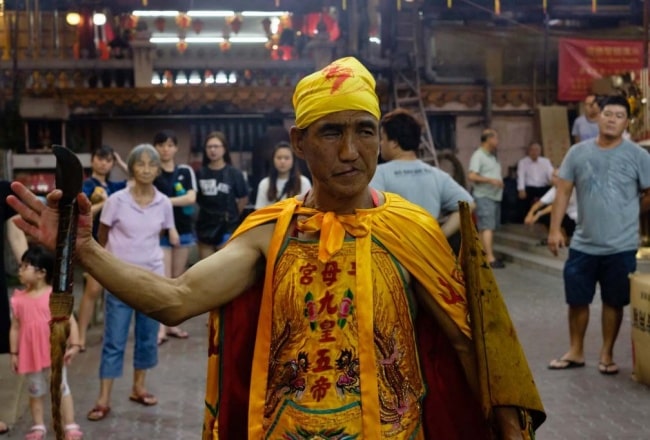
Popular folk culture has it that the Nine Emperor Gods are actually sea pirates of the Ming dynasty that plotted to overthrow the Qing dynasty. According to Priest Long Hua, this information is inaccurate and considered derogatory to the actual teachings of Taoism as the
Nine Emperor Gods are actually high-ranking Star Lords who preside over the movement of planets and coordinate mortal Life and Death issues. Wu, Jave (2008), Celebration The Nine Emperors is formed by the seven stars of the Big Dipper of the North Ursa Major (visible) and two assistant stars (invisible to most people). The Nine Emperor Stars are:
- Tan Lang Tai Xing Jun 1st Star Bayer
- Ju Men Yuan Xing Jun2nd Star Bayer
- Lu Cun Zhen Xing Jun 3rd Star Bayer
- Wen Qu Niu Xing Jun 4th Star Bayer
- Lian Zhen Gang Xing Jun 5th Setar Bayer
- Wu Qu Ji Xing Jun 6th Star Bayer
- Po Jun Guan Xing Jun 7th Star Bayer
- Zuo Fu Da Dao Xing Jun 8th Star
- You Bi Da Dao Xing Jun 9th Star
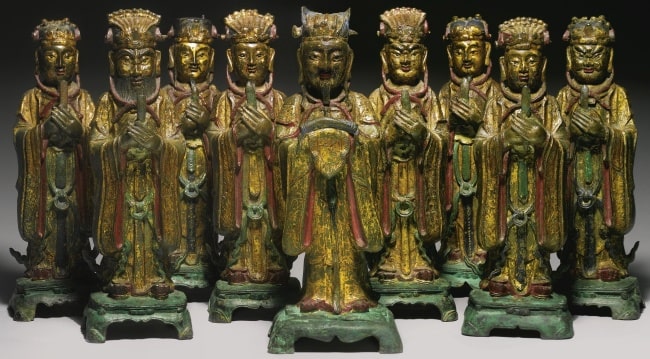
Nine Emperor Gods Festival celebration in popular folk culture
On the eve of the ninth moon, temples of the deities hold a ceremony to invoke and welcome the nine emperors. Since the arrival of the gods is believed to be through the waterways, processions are held from temples to the sea shore or river to symbolize this belief. Devotees dressed in traditional white, carrying incense and candles, await the arrival of their excellencies.
A carnival-like atmosphere pervades the temple throughout the nine-day festival. During this period of time, the constant tinkling of a prayer bell and chants from the temple priests are heard. Most devotees stay at the temple, eat vegetarian meals and recite continuous chanting of prayer. It is believed that there will be rain throughout the nine days of celebration.
The ninth day of the festival is its climax. A procession which draws scores of devotees sends the deities back home.
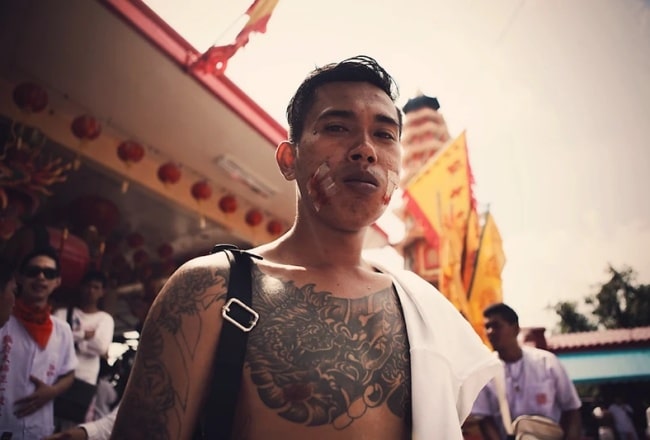
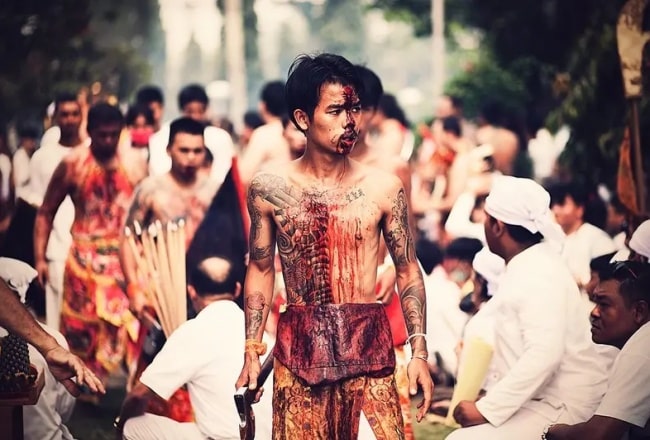
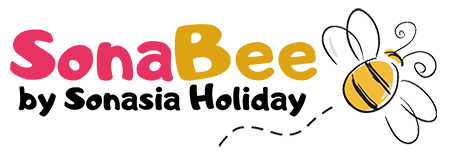

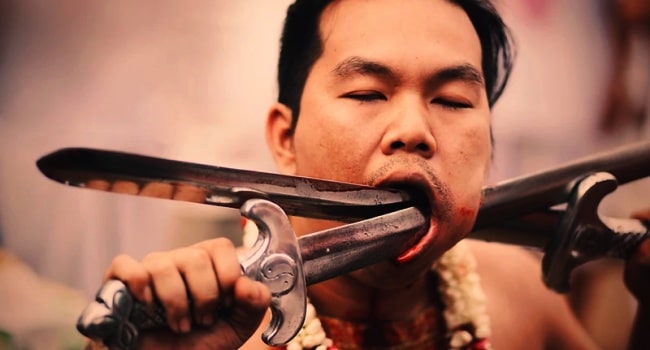

 20/02/2026
20/02/2026


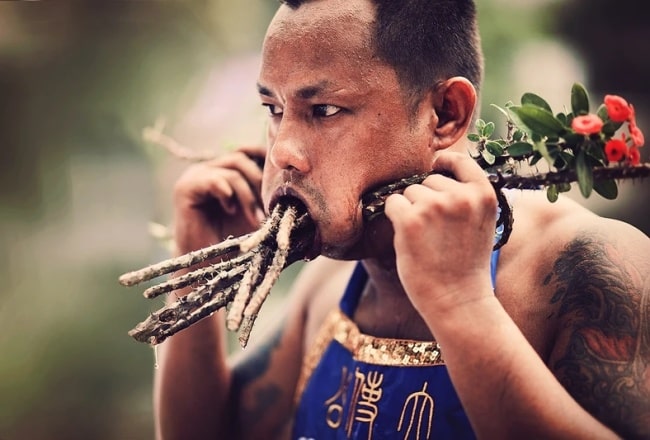
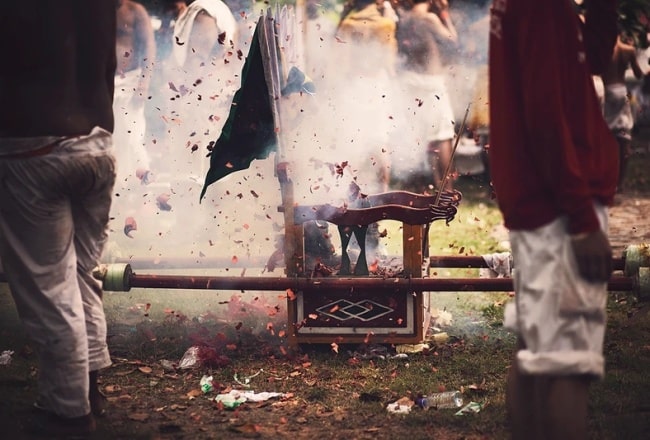
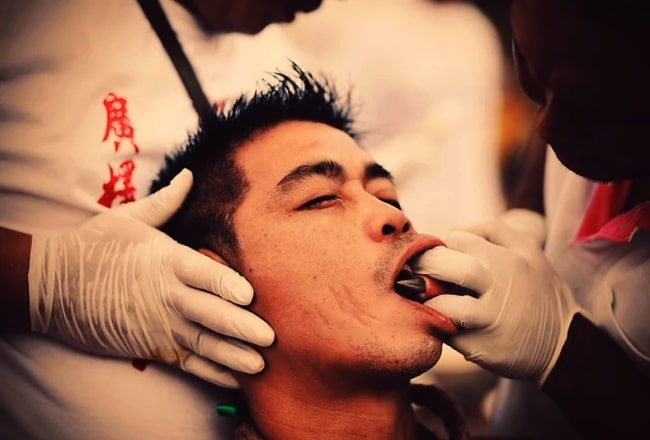
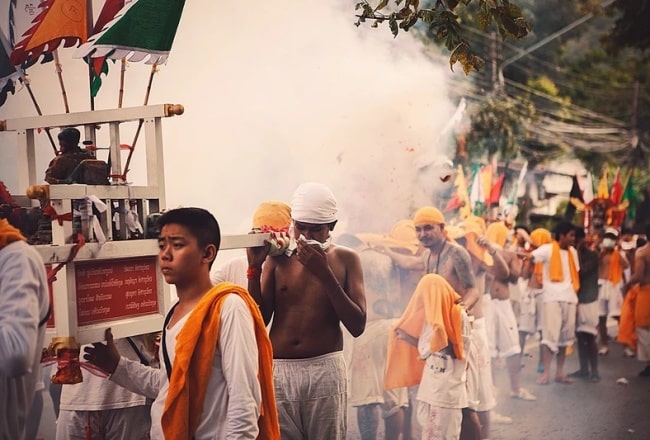
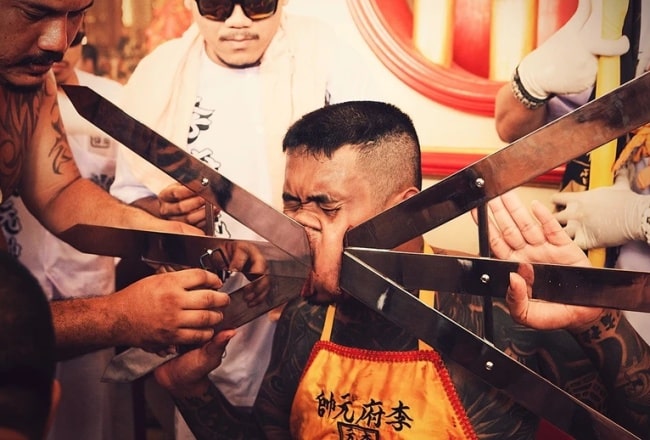
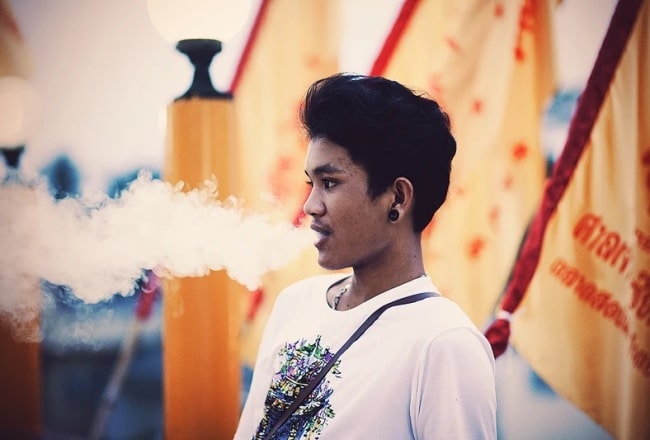
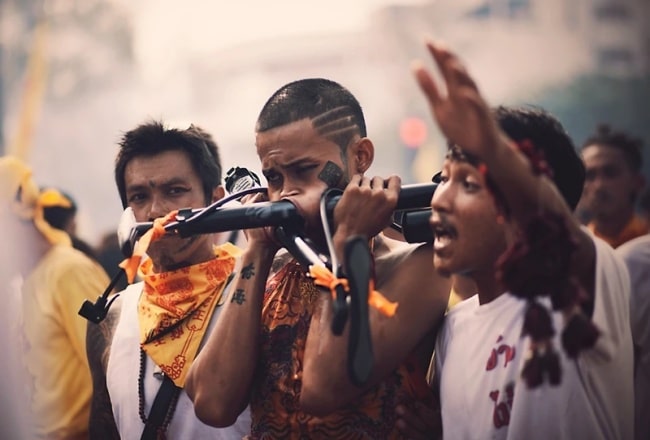
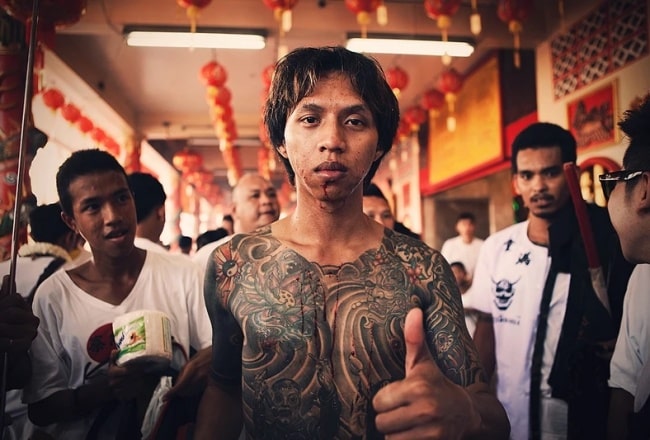
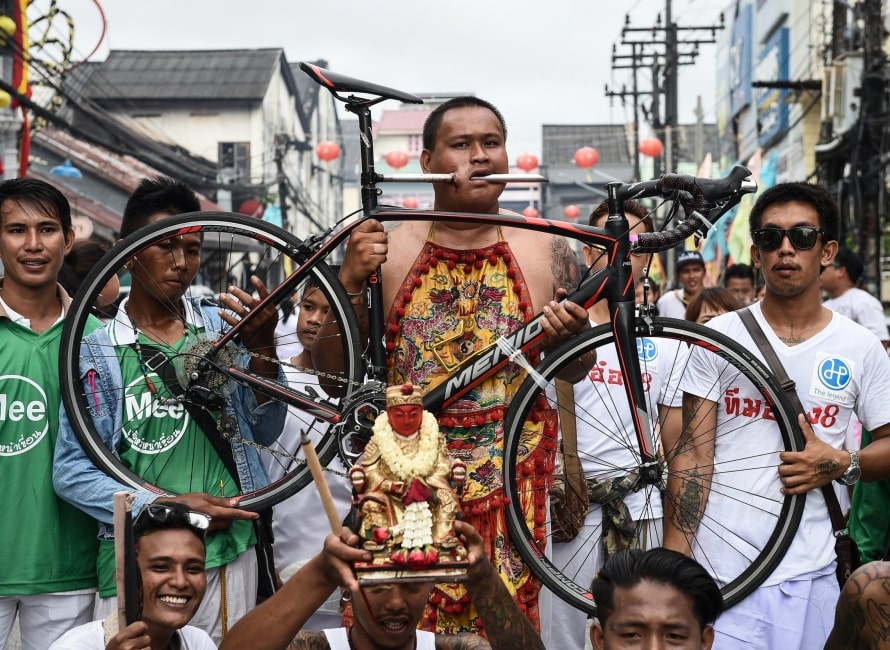

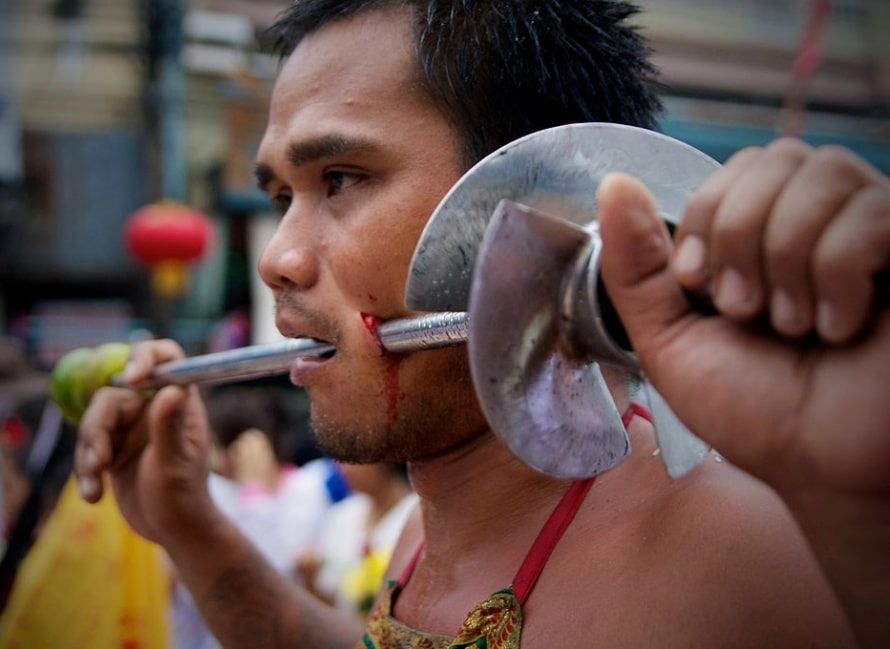
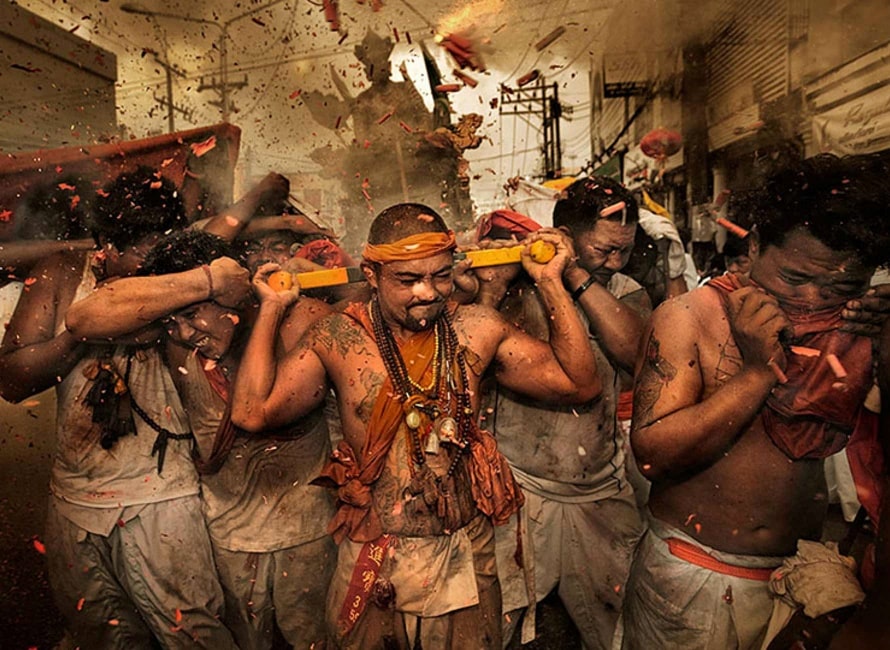

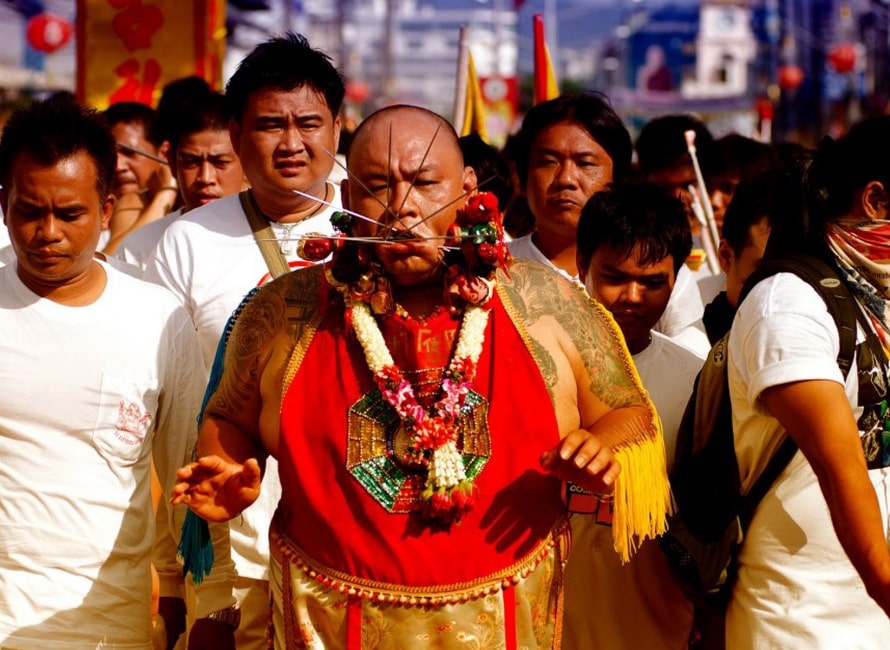
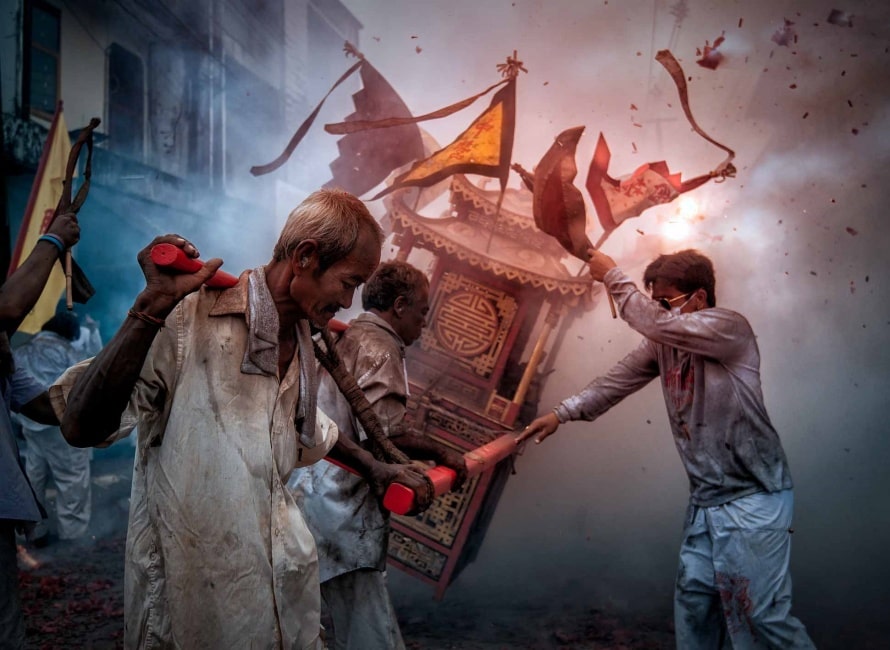
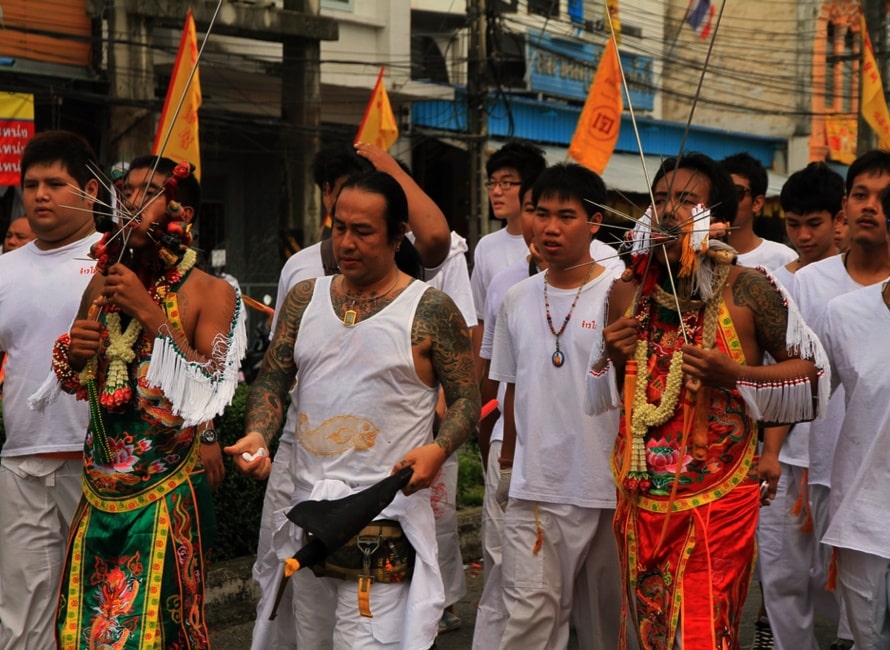
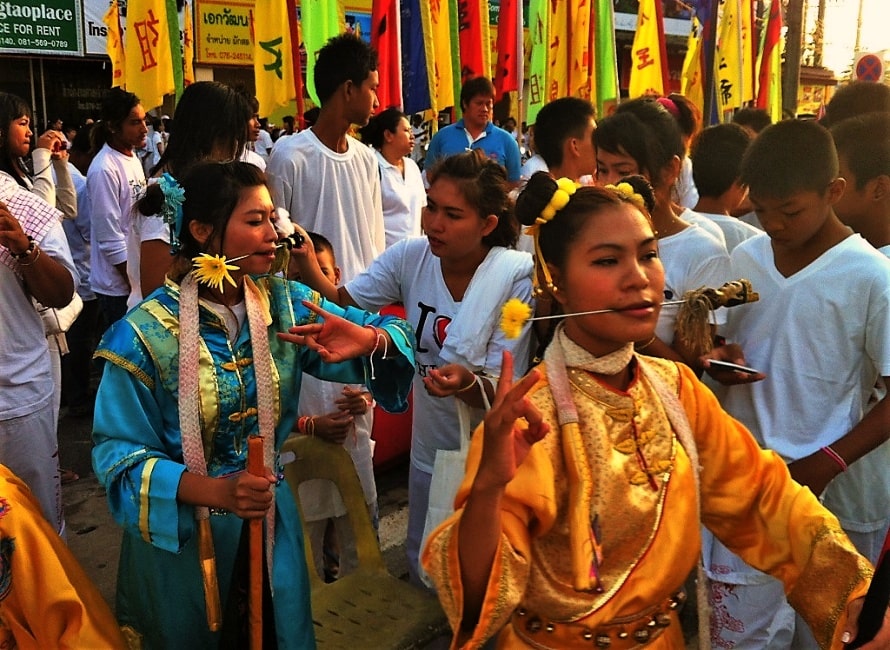



















Jolie LIEMMy name is Jolie, I am a Vietnamese girl growing up in the countryside of Hai Duong, northern Vietnam. Since a little girl, I was always dreaming of exploring the far-away lands, the unseen beauty spots of the world. My dream has been growing bigger and bigger day after day, and I do not miss a chance to make it real. After graduating from the univesity of language in Hanoi, I started the exploration with a travel agency and learning more about travel, especially responsible travel. I love experiencing the different cultures of the different lands and sharing my dream with the whole world. Hope that you love it too!